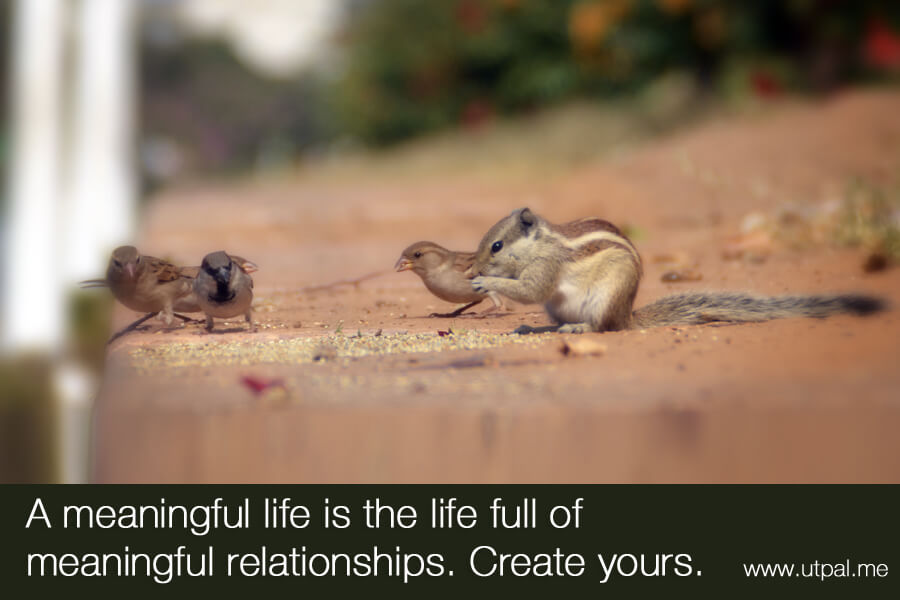Let’s agree to this – your relationships can make you happy. Or unhappy.
We are part of an ecosystem where everyone is related to everyone else.
We, humans, are meaning-making machines. The mechanics of a meaning-making device include truth, goals, success, failure, and relationships.
Let’s discuss relationships for now.
Meaningful relationships give hope. When we begin each day with hope and fill it with actions, our lives become meaningful.
Meaningful relationships = Meaningful life.

[bctt tweet=”“A meaningful life is a life full of meaningful relationships. Create yours.”” username=”utpalmv”]
To live a meaningful life, you must have a meaningful relationship with at least the following:
– yourself
– people who matter to you
In his book, The Monk Who Sold His Ferrari, Robin Sharma wrote, “The purpose of life is the life of purpose.”
A powerful statement. It states that you can choose the purpose of your life. The same is the case with meanings.
So, here’s a big idea: consciously participate in meaningful relationships, and you’ll have a meaningful life.
Some people recommend that you should “invest” in relationships – I disagree.
When you “invest” in something, you expect a profit out of that investment. If you do it with your relationships, sooner or later, they will go sour. And you, unhappy.
But when you participate in something, you don’t expect any outcome out of your participation. Genuine participation means real life, lived in the moment, without any expectation or a desire for a tangible result whatsoever.
To observe genuine participation in action, watch the behavior of a 3-year-old child. She’d not invest her time into any activity. She’d participate. May it be playing with her friends. May it be interacting with her parents in her wordless way…observe her participation.
It is essential to understand the distinction between investing in relationships vs. participating in relationships.
When you understand this distinction, it will change how you treat other people. A couple of examples:
a) As a parent, you will not “invest” your time in your child; you will participate in a shared life.
b) You will not make friendships based on social status or wealth. You will allow genuine friendships to emerge without any effort from either side.
In short, you will not get into a relationship to gain ‘something’ out of it.
Every dysfunctional relationship has unmet expectations. When you don’t form relationships to gain something out of it, expectations will start to become less and less relevant.
All of us have a basic need – acceptance. Acceptance for whosoever we are. The world wants to change us, and we don’t like to change.
So instead of forming relationships and expecting others to change to suit our idea of right, what if we enable the other person to realize and operate from her peak potential?
Such an act is life. And remember, you are not here to find a meaning of your life; you are life!
Life celebrates itself when it is free from expectations.
Granted that all relationships have expectations, but it is certainly possible to have mutually fulfilling relationships that make life beautiful.